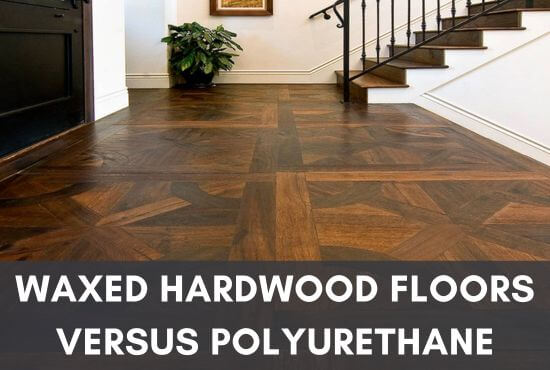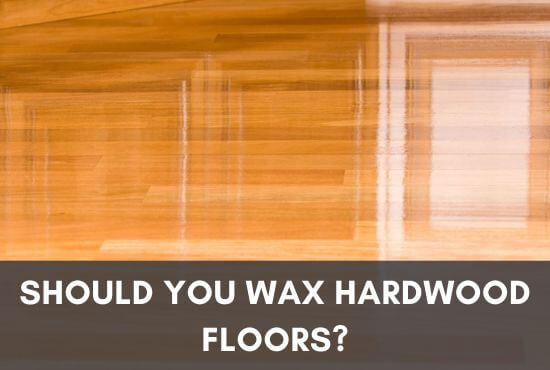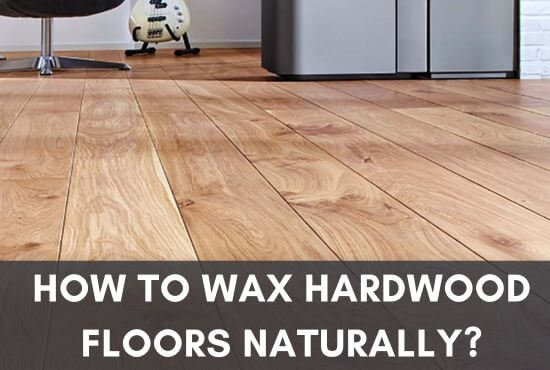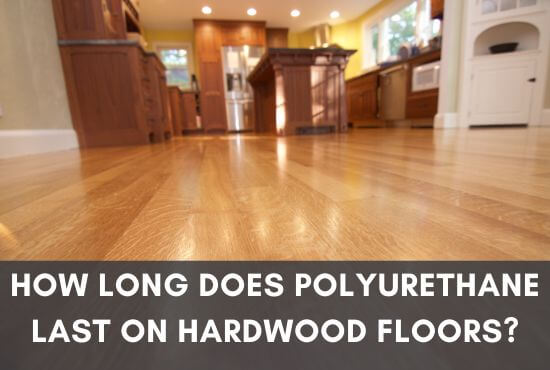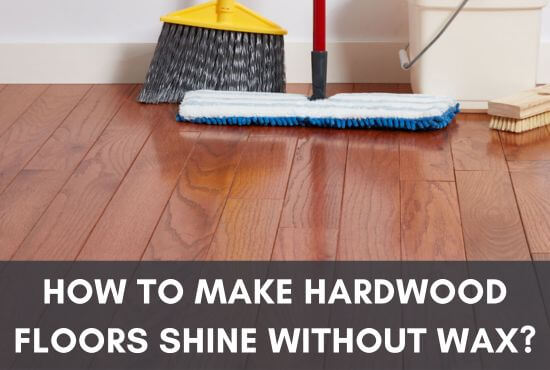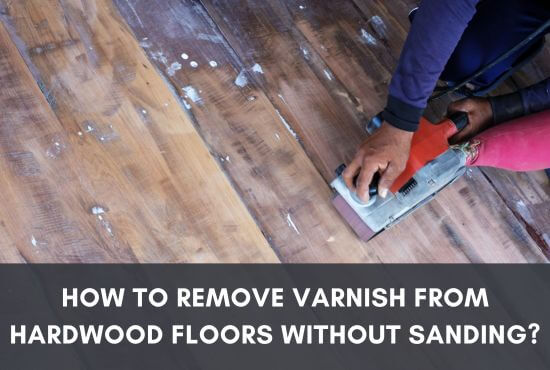Ever since the invention of polyurethane finishes, homeowners and flooring experts have started a never-ending debate to determine which finish is the best for your hardwood floors.
While both of these finishes have their own pros and cons, the never-ending debate of waxed hardwood floors versus polyurethane will finally be settled today.
Oil wax finishes are a suitable option for hardwood floors if you are on a budget or require a low-sheen product that is easily applied and doesn’t require a professional crew. However, if you are looking for something more sturdy that gives you greater endurance and serves commercial purposes, you must go for a polyurethane finish.
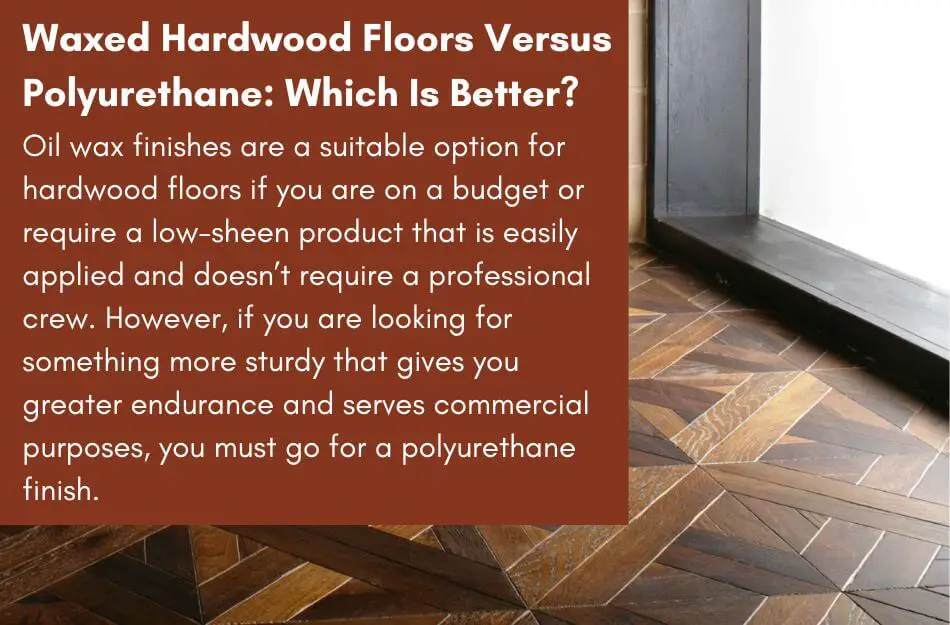
Before diving into which one is suitable for hardwood floors in detail, I want you to go through what actually wax and polyurethane finish are.
Table of Contents
What Is A Hardwood Floor Wax?
Waxes for hardwood floors were originally made from natural substances such as beeswax, carnauba wax, etc.
With time and industry advancements, commercial synthetic products replaced these products.
They gained popularity due to their ease of application, easy process, and faster results compared to the natural alternatives.
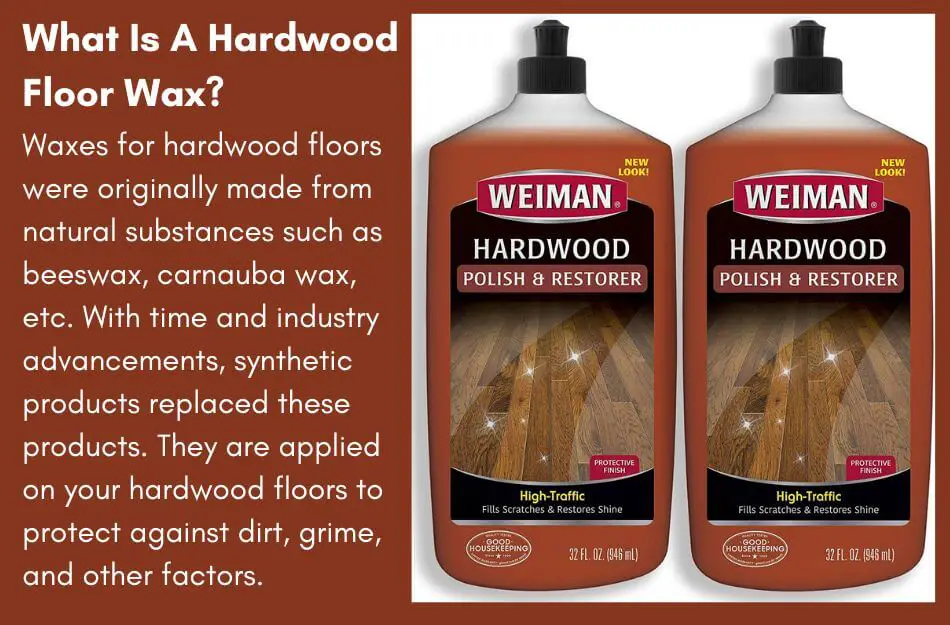
However, many flooring specialists still recommend that owners use natural products.
In the present day, you can get floor wax in solid and liquid forms, so you can choose which is the most convenient for you.
Moreover, these are now called floor polishes or finishes, which can be applied by hand or a lint-free microfiber cloth. Learn how to wax hardwood floors naturally.
They are applied on your hardwood floors to protect against dirt, grime, and other factors. However, many argue on the fact whether they provide the claimed amount of resistance or not.
If you are confused about whether to apply wax or not, I’ve written a comprehensive guide on should you wax hardwood floors that’ll surely clear and make up your mind.
What Is Polyurethane?
Polyurethane is less old than wax but has been used since the 1970s. Besides, it was only a matter of time before it started to gain popularity, and curious people began trying it out.
After some time, it gained massive acceptance from homeowners and flooring experts and even surpassed the natural finishes of oil and wax.
There are mainly two types of polyurethane; the first is water-based while the second is oil-based.
The oil-based versions are made by mixing wood oil with many other components, including resins which are usually synthetic such as polyurethane.
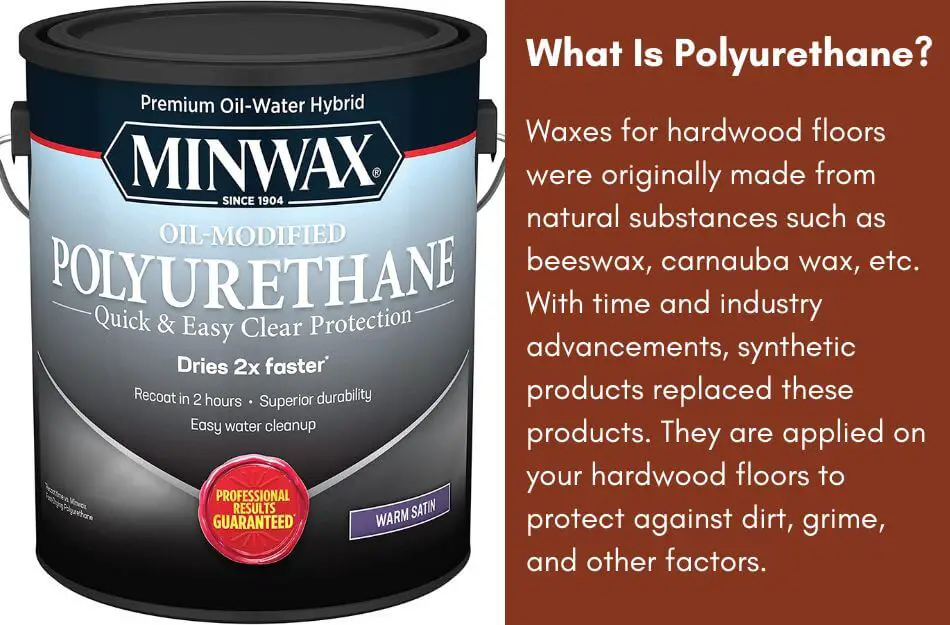
In water-based versions, water is mixed with a resin; hence, making them more suitable for the environment.
Although it doesn’t cross oil-based durability variants, it is safer to use regarding VOCs.
Normally, wax finishes move into the surface of the wood to form a film and provide the necessary protection.
Whereas polyurethane finishes offer a 3-4 layer resistance on the surface for premium protection.
Hard Wax Oil Finishes | An Overlook
Hardwood wax oil finishes are among the oldest ways to seal and protect hardwood floors.
Not only do they provide optimum resistance but they also give the floors a luscious look and increase their appeal.
Besides, they are considered the best solutions for domestic requirements.
Wax finishes have the capability to give protection to your floors against various factors such as heavy traffic, spillages, temperatures, weather conditions, and more.
Besides, they can also be used in combination with other sealing methods, such as stains, to increase the overall protection for your expensive hardwood floors.
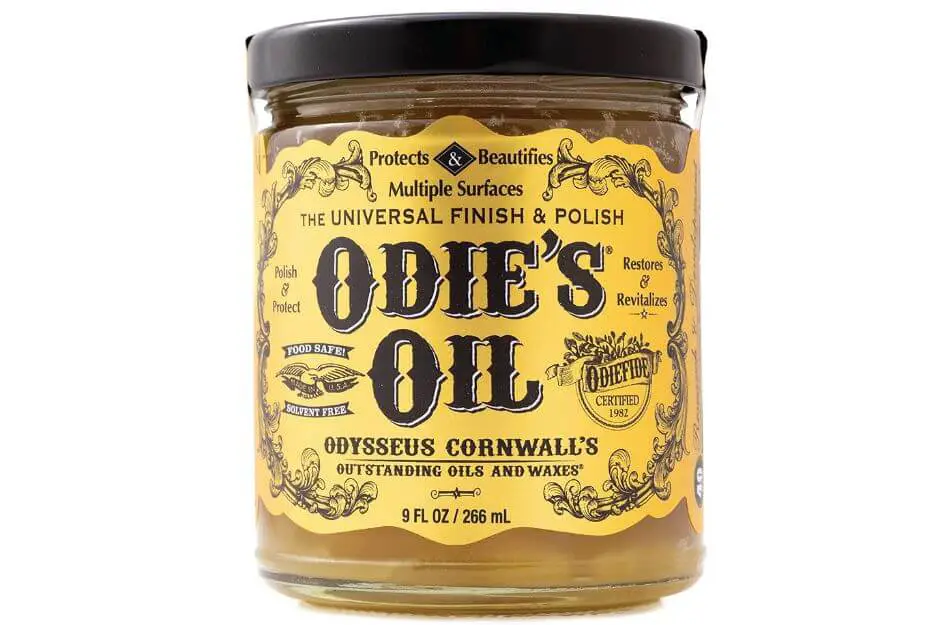
Wax finishes have been relied upon for decades and people trust that they can protect their hardwood floors and prevent any possible damage to them.
Many people apply wax finishes to vintage hardwood floors for preservation, but they are also extensively used immediately after installing brand-new hardwood floors.
- Non-toxic due to less VOC content.
- Mild smell during application.
- Low sheen makes the wood appear more natural and enhances the wood grains.
- Stain-resistant qualities of wax give it an edge over competitors.
- Superb water-resistance.
- Wax is soft and flexible, hence, it does not lift up or show any cracks as polyurethane does.
- Easy application for newbies.
- Repairing wax surfaces is easier than polyurethane.
- It is far simpler to use wax to hide scratches and scuff marks with a buffing session.
- Easy cleaning.
- Quick coating due to the fast drying abilities. A single coat takes approximately 2 to 4 hours, allowing up to 2 coats per day.
- Wax can bear temperatures and hence is suitable for under-floor heating floors.
- If maintained properly, wax floors accentuate and look better with time.
- Wax contains necessary elements for wood, which feed the woof fibers, keeping them strong and healthy for a long period.
- Recoating waxes can increase the nourishment and protection of your hardwood floors.
- It is easy to breathe on a wax-coated floor; hence it is safer for health.
You May Also Like: What Is A Safe Disinfectant For Hardwood Floors?
Upside
One of the greatest features of hard-wax oil finishes is that they are not toxic to your health, unlike many other competitors.
They do not contain any biocides, preservatives, or benzenes. Moreover, hard wax finishes offer you a variety of diverse colors.
You can choose the right type of color according to your hardwood flooring to accentuate and complement the texture and grain of the wood.
Therefore, it protects and adorns the floors, bringing out the best version of your hardwood floorings.
Moisture is an important factor in the health of your hardwood floors as it helps keep the fibers firm and strong.
Wax coating locks in this moisture and prevents the floors from drying out. This eliminates any chances of warping or cracking in your valuable wooden floors.
Indeed, an amazing characteristic of wax coatings and finishes is that they do justice to your expensive hardwood flooring by further enhancing its appearance over time.
The color and texture of the wood become more appealing while the grain gains more character with wax coatings as time passes.
Another amazing feature of the wax finishes is that they do not simply sit on the hardwood floor.
Instead, they permeate the surface and settle into the upper fibers of the wood flooring.
This gives a grip to the entire surface and makes it stronger than ever. Furthermore, it also helps in locking out excess moisture and prevents the chances of staining on your floors.
Yet, the hard wax finish does not constrict the wood cells and allows them to breathe so there isn’t any rotting or infestation under the surface.
Besides, this can also prevent any chances of molds and mildews from building up. Hard wax oil makes the wooden flooring more robust, increasing the life and improving the look.
Allowing for optimal breathing for your wooden floors certainly does not mean that hard wax oil finishes will allow water or spillages to seep through.
These finishes are water-proof to the highest level mainly because they allow for expansion and contraction.
Unlike its competitors, hard wax does not build a film on top of the floors which can cause the moisture to be trapped inside and prove harmful later on.
Maintaining and repairing hardwood floors with hard wax finishes is much easier.
The finishing process is way faster with wax finishes which means it is easier to spot repair, as all you need to do is sand the area down a bit and apply a coating on the affected area.
- Used in combination with stains.
- Permeates the surface and settles in.
- Dries quickly, making application easier.
Downside
Although wax finishes do not have many downsides, our moral responsibility is to give you a clear picture.
If your hardwood floor has been waxed and you think you’re done with the process, you’re wrong. You would have to apply new coats afterward as the existing ones will wear off.
Moreover, after some time, you would be required to strip off all the existing coats and apply the wax finish all over again.
Although this process is relatively easy and requires professional knowledge, it is still hectic and takes time.
Furthermore, if you’ve reapplied the coats or applied a new one, you will realize that the gloss has faded away and your floors do not shine as they used to.
The reason for that is that you need to buff the floors again and wait for a few days before the glaze returns.
- Doesn’t match polyurethane in durability.
- Requires constant maintenance and re-application of coats after some time.
- Only suitable for low-traffic areas as it wears out very quickly under high traffic.
- Features higher viscosity, meaning it is difficult to apply and requires much effort.
- Doesn’t give the same level of strength or hardness as polyurethane.
- Cleaning waxed floors is way harder as you must countercheck products for wax safety usage. This makes it a hectic job as general wet mop cleaning is unsuitable for waxed floors. But no worries because I have also created a whole article on how to clean waxed hardwood floors so that the wax shine doesn’t get spoiled.
Polyurethane Finishes | An In-Depth Review
Polyurethane finishes offer you diversity within the category. You can choose water- or oil-based polyurethane finishes, which are suitable for different purposes.
Both have their pros and cons when compared with either each other or with hard wax oil finishes. Have a deeper look at the topic, and you might better understand how it works.
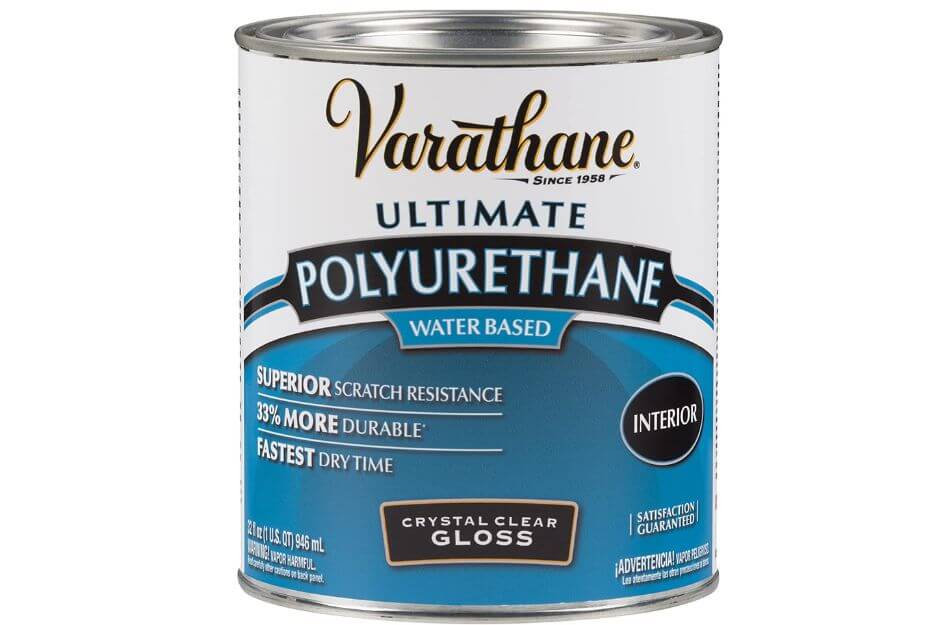
- Easy application.
- The drying time is way faster than waxes. For water-based finishes, the time is even faster than the oil-based finishes.
- It is accepted as the most sturdy and durable finish in the marketplace.
- The process of maintenance for polyurethane is fairly simple. You don’t need to recoat it repeatedly as it is impossible. You will need to redo the process only once after a few years.
Water-Based | Advantages
Water-based finishes had to come into the market after the rising problem of waxes and oil-based finishes turning yellow after some application.
Hence, these proved to be excellent alternatives for oil-based polyurethane finishes, which gave the floors an amber hue.
Furthermore, water-based finishes have less drying time than wax or oil-based polyurethane finishes.
In addition, due to their flowy nature, they are very easy to apply and offer better durability. They can work better against abrasions and give the floor a lush look.
Besides, water-based finishes simplify cleaning, and you would have to clean less frequently. Their durability comes from aluminum oxide particles included in the composition during manufacturing.
They aim to harden the substance once dried, increasing its durability and strength against wearing factors.
Also Read: How Often Should You Clean Hardwood Floors
Water-based | Disadvantages
You must not use water-based polyurethane if you want a natural look on your hardwood floors with a low sheen and a softer appearance.
The reason is that this solution is basically plastic in liquid form; once dried, it will give the appearance of a plastic sheet on your hardwood floors which might undermine the natural wooden look and make it look more artificial.
This factor applies to oil-based finishes, too, as they fall into the same category. Maintenance is almost impossible with water-based finishes as they do not allow spot-repairing.
If your hardwood floors or the protection layer has been damaged at some point, you will have to remove the entire existing layer and reapply a coat if you want to fix that.
Moreover, not only are they expensive as compared to waxes and oil-based polyurethane finishes, but they also require professional knowledge.
If you don’t have sufficient knowledge and don’t administer them properly, there is a high chance that these finishes will leave lap marks.
- Except for linseed oil, water-based and oil-based polyurethanes do not have many differences in composition.
- They are made from the same elements and perform the same functions. However, water-based finishes are much thinner in consistency.
- Due to a thinner consistency, they offer limited durability under heavy traffic.
- Synthetic resins and solvents are present in both polytypes, which can release harmful vapors during application that can cause health disturbances.
- Due to the reason mentioned earlier, it is not suitable for humans or pets to stay in the room which is being finished, and it would be weeks before the smell has completely gone away.
- The thin coating can cause cracks in the surface which might cause the torn parts to lift and cause damage to either the ones stepping over or the wood underneath.
- They do not permeate the surface and form a film on top which doesn’t allow the wooden flooring to breathe and remain fresh.
- Should not be at home during the application process.
Oil-based | Advantages
Although they are not as strong as water-based solutions, they provide a reasonable amount of durability and strength, especially more than wax finishes.
Moreover, if you don’t have enough professional knowledge and want to go with polyurethane for finishing purposes, you must go for oil-based variants as they are easier to apply and don’t involve a complex process.
Another added factor is affordability; oil-based finishes are cheaper than water-based finishes.
As your hardwood flooring is very expensive, you wouldn’t want to go overboard by spending too much on finishing. Therefore, oil-based poly is a good idea.
- Long-lasting
- It is possible to choose the amount of glossiness.
- A large variety allows you to choose the grade of oil-based finishes to get the right product for the amount of traffic your flooring will receive.
- Not overly costly
- Moisture resistant
- Simple application process
- Quick drying
- Safe for you to be home during the application
- EPA approved
- Options for non-yellowing products
- Although the drying process is quick, it is best to clear the flooring of any objects or furniture for the next 48 hours.
Don’t Miss: How To Disinfect Hardwood Floors Naturally?
Oil Based | Disadvantages
Oil-based finishes are more durable and also more harmful as compared to water-based finishes or waxes.
They contain Volatile Organic Compounds (VOCs), and those too, in high quantities.
These are harmful and toxic substances that have a strong smell. If inhaled by children or pets, it can lead to medical problems too.
If you’ve ever witnessed the application of oil-based finishes, you would be aware of that signature oily smell, exactly what the VOCs emit.
Besides, they also lose their color after some time and turn yellow. This can destroy the look of your hardwood floors underneath.
Moreover, just as with water-based finishes, polyurethane doesn’t allow for spot-repairing, and you will have to strip off the entire coating and recoat it if the floor or finish is damaged at some point.
Furthermore, if somehow your floor has scratch marks or already did before you coated it with poly, they will get more noticeable after your finish.
It doesn’t matter whether you use oil-based or water-based polyurethane finishes as both will amplify any imperfections.
Besides, if there are any scratch marks after the finishing, it will result in stubborn white lines, which you can not repair until you remove the entire coating.
In addition, as all polyurethane finishes are essentially liquid plastic, they will give that look whatsoever.
Since they cover the hardwood floors from the top and do not permeate the surface, moisture can be trapped under the coating and above the wood’s surface.
This can further lead to molds and mildews and cause rotting over an extended period.
- Not conducive to spot repairs
- Water-based flooring finish
- Wax Hardwood Floor Finish
- Minimum drying time of 24 hours between coat applications
Related: How Long Should Hydrogen Peroxide Sit On Hardwood Floors?
Final Thoughts
Waxes and Polyurethane finishes are both effective solutions to finish your hardwood floors and provide them with a suitable protective coating.
Both of them have their pros and cons; hence, deciding the best one depends upon the criteria that you have set.
However, it is crucial to get your unfinished floors sealed as soon as possible to avoid any unwanted accidents.
So, what are you waiting for? Decide which finisher you want to use and get your floors sealed today!

As a co-creator of FlooringFlow.com, Emma Sophia comes on board to answer all your questions related to any flooring problems. Together with John Henry, she’s gained extensive experience in fixing many flooring problems in their own house as well as in friends and family’s. Now, she wants to share her knowledge that she gained during floor remodeling, restoring, and DIY projects.

